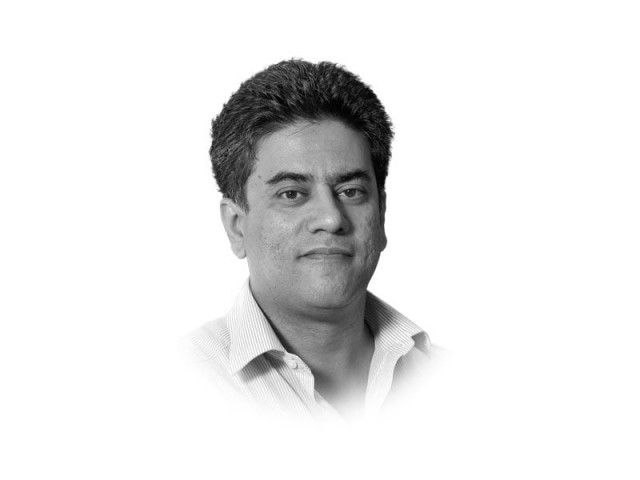Looking inwards
If self-accountability does not start with parliament, where else will we look for it?

The writer is Editor of The Express Tribune
Kudos to Saad Hasan, the reporter who finally filed the story and to Mahim Maher, the city editor who decided to take it on her pages. I remember the opening sentence. Talking about a crime reporter who did not die but went blind from the alcohol, the story started: “For a man who makes his living recording people’s lives, going blind is worse than death.” It was a powerful story that needed to be told. More so, because we as journalists report similar stories about other people. How can we hold ourselves above accountability?
As the media expands and proliferates, we must have in place a system to look at what we say. Thanks to the initiative of our enterprising publisher, Bilal Lakhani, and the persuasive efforts of our executive editor, M. Ziauddin, we were able to bring on board one of the most respected names from the judicial fraternity to become our paper’s public editor, or, as we call him, our Ombudsman.
Justice (Retd) Fakhruddin Ebrahim’s coming on board, in a purely honorary capacity, showed how serious we were about self-accountability. His decisions are binding on us. It is very important to remind ourselves every day that we have to look at ourselves in the mirror and justify what we print, particularly our news stories.
The disappointing part in this is that we had hoped that once we took the lead, others would follow. This has not happened. It is difficult for one to complain against media houses in Pakistan.
By and large, like all professions, many in the media would rather suppress news about their community than expose wrong-doings. I can guess there is a logic to that. But should we be doing this, I wonder.
Due to a number of reasons, it is difficult for one to get a media house to make amends when stories appear against a person or an institution. There may be informal systems in place - whereby an approach to the management or owners of the house may get the desired results, but otherwise a complainant cannot get very far.
I tell my class at Karachi University that every person is biased owing to their circumstances. We have to counter the bias by taking all sides of the story. Sometimes there are more than two sides to a story. In practice, however, this is difficult. But we have to be mindful of the right and the wrong.
This approach of protecting one’s own is not restricted to the media. Self-accountability is a prickly issue, as we saw recently with the statements of none other than Jamshed Dasti, the man of the people who was disqualified for having a fake degree. What few people know is that Dasti is possibly the poorest parliamentarian in the national assembly.
Last week, Dasti blasted MNAs about the fact that the suites at the parliament lodges, located opposite the National Assembly, are used more for the pleasure and entertainment of MPs and less for their housing requirements. Dasti talked about liquor and dance parties. While constituents barely make it past the gates of the lodges, a number of other unsavory characters come and go and will, and here we are not talking about MNAs.
My issue is with the response of the MNAs, our public representatives. Dasti has every right to make these allegations, it is his privilege. What is surprising was the response. Acting speaker Naeema Kishwar (wrongly named Naeema Kishore in many media reports) of the JUI-F who was in the chair ordered Dasti’s microphone switched-off. Later, speaker Ayaz Sadiq demanded proof. Sadiq also made the statement that if Dasti was wrong, then the parliamentarian “will decide on his punishment.” The last time I checked, this was the work of the judiciary. If self-accountability does not start with parliament, where else will we look for it?
Published in The Express Tribune, March 3rd, 2014.
Like Opinion & Editorial on Facebook, follow @ETOpEd on Twitter to receive all updates on all our daily pieces.













COMMENTS
Comments are moderated and generally will be posted if they are on-topic and not abusive.
For more information, please see our Comments FAQ